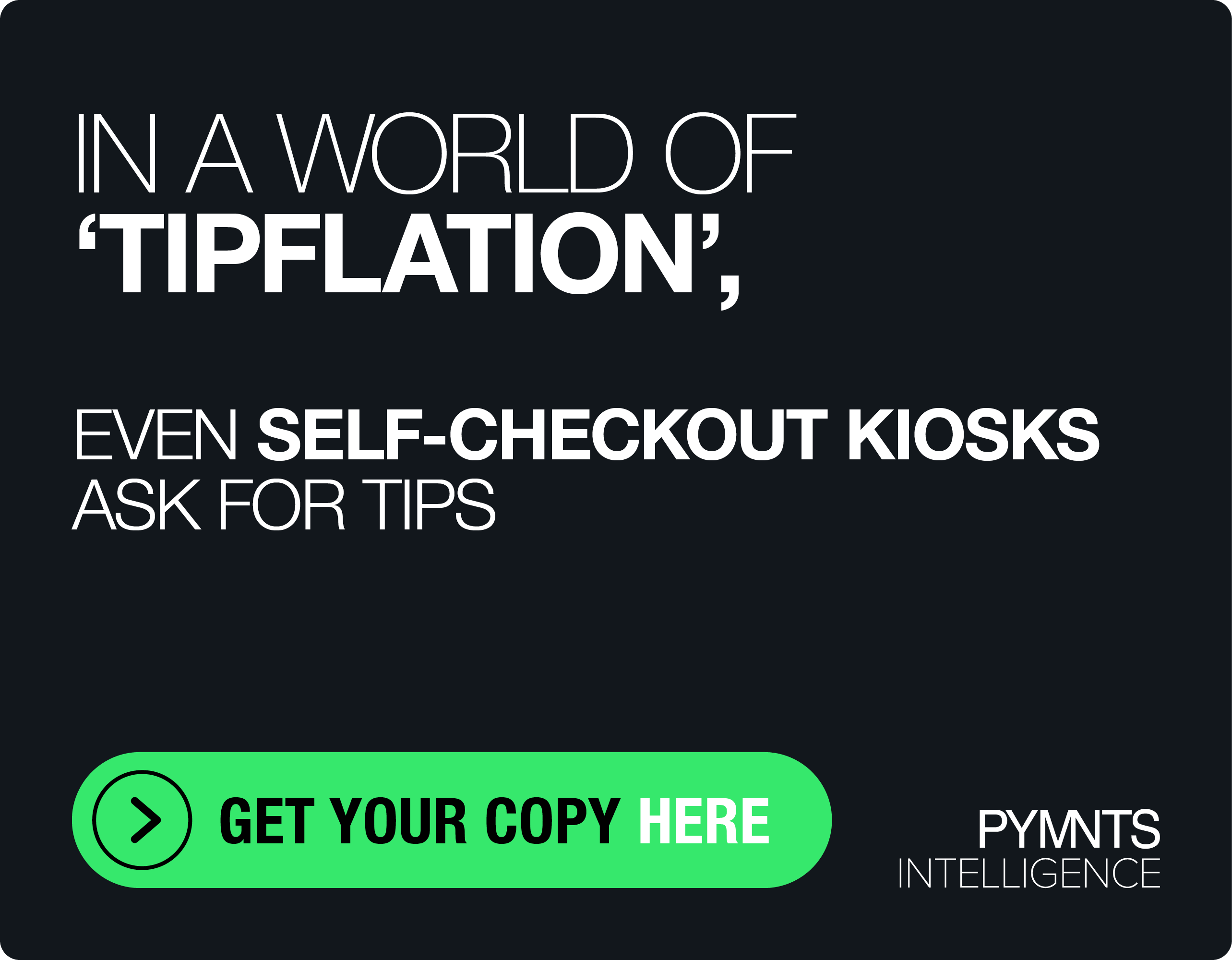This Week in Payments: Walmart Bets on Banking, the CFPB Warns of Overdoing BNPL and Consumers Are Forced to Get Thriftier
This was the week when the Consumer Financial Protection Bureau released its awaited buy now, pay later (BNPL) report — it’s uneasy to say the least — Walmart made a bold move into true retail banking and both consumers and small businesses (SMBs) showed inflation fatigue setting in, bringing an air of pessimism to pre-holiday preparations.
Making sense of it all in This Week In Payments with PYMNTS’ Karen Webster is Ingo Money CEO Drew Edwards, “the OG in FinTech,” as he’s sometimes known, and a keen observer of trends.
BNPL Beware?
In the CFPB’s highly anticipated report “Buy Now, Pay Later: Market trends and Consumer Impacts,” we find what many expected: an uneasiness with easy credit issuance.
In a somewhat stunning statement, CFPB Director Rohit Chopra said, “we find that Buy Now, Pay Later firms are building business models dependent on digital surveillance. In some ways, these firms aren’t just lenders, they are also advertisers and virtual mall operators. Because they are deeply embedded as a payment mechanism for e-commerce, Buy Now, Pay Later lenders can gather extraordinarily detailed information about your purchase behavior.”
Suggesting oversight akin to that of credit cards for BNPL, the report indicates seismic shifts in the sector downstream. For his part, Edwards said, “I’m always in the camp of government staying out of the consumer’s decision processes. But in this case … one thing that did jump out is the fact that this credit, which is not really being marketed as credit, is not really feeding into the credit bureaus in the same way, so that a lender and a borrower can get in trouble without good information there, not realizing how many of these has been taken out.”
Saying he likes the “increased the velocity” that gives optionality to with something like a loan, but not tracked as such, he called it “very credit card-like, but with installment flexibility. I’m a fan of buy now, pay later. I do think it needs to be reported properly. If that’s missing, it’s the one odd case where I would agree with the CFPB and say that needs to be fixed.”
Read: CFPB Says Consumers at Risk From BNPL Over-Extension
Inflation: A Tale of Two Consumers
Moving on to inflation’s effect on consumer spend, the pair delved into recent PYMNTS research finding trade-downs and belt-tightening getting worse, with 70% of consumers saying they’re reducing retail spend to cover soaring prices in sectors like groceries and gasoline.
Pushing aside attempts to keep the “R word” at bay as long as possible, Edwards said, “I believe we’re in a recession. I know the economists think we’re not, but I bet you by the end of the year, everybody will be calling it a recession. An inflation-driven recession.”
Webster essentially concurred, saying a third of consumers believe that the economy is already in a recession, and 45% are convinced we will be by the end of 2022, and it will stretch into 2024.
“It’s a tale of two consumers,” Edwards said. “I’ve been dealing with runaway wage inflation. My tech guys are making more money than they’ve ever made because they’ve got choices. Then on the other side, [hourly workers are] falling behind with this inflation rate. It depends on where you are in America, but for the paycheck-to-paycheck part of America, which we all believe is 50%, 60%, this is a bad time.”
Read: Retailers Brace as 70% of US Consumers Skip Retail Purchases to Buy Groceries and Gas
Walmart Breaks Into Banking
Walmart’s move into straight-up banking was on the agenda, and Edwards was somewhat bemused by the trajectory of events over time, saying, “I’m so old, I remember the fight where Walmart was trying to get an industrial loan charter.”
Fast-forward to Walmart piloting neobank services for its 1.6 million employees through FinTech ONE which it formed early this year after creating an in-house FinTech unit in 2021 with Ribbit Capital, a venture capital backer of Robinhood.
Edwards took a pragmatic view, saying, “It’s not like Walmart is going to be one that’s going to disrupt the banking industry. I feel like the neobanks are already doing that. So, whereas in the first go round I was probably anti Walmart getting in the banking business, this just feels OK.”
He added, “I don’t think Walmart is as big a threat to everybody as they may have been 10 years ago. I feel like it’s a good time for Walmart to do this … as long as they get the money mobility right. Money in, money out.”
Webster’s take is that “they could actually be a pretty interesting entrant and a threat to neobanks because of the population that they serve, the capabilities they could knit together within the digital bank as being the foundation for payment for all these other services and capabilities. It’s something to keep an eye on.”
Read: Walmart Takes First Step to Launching Digital Bank With One
